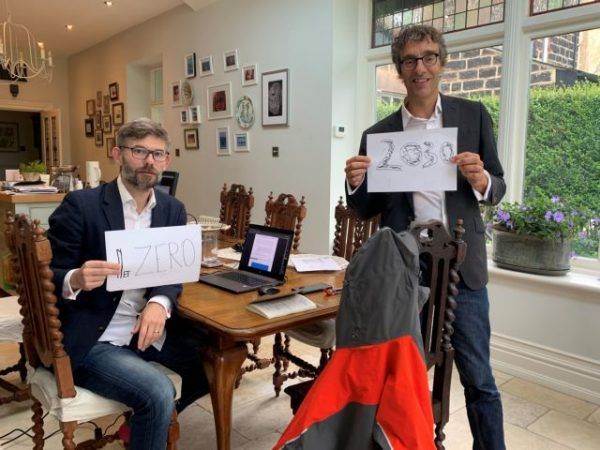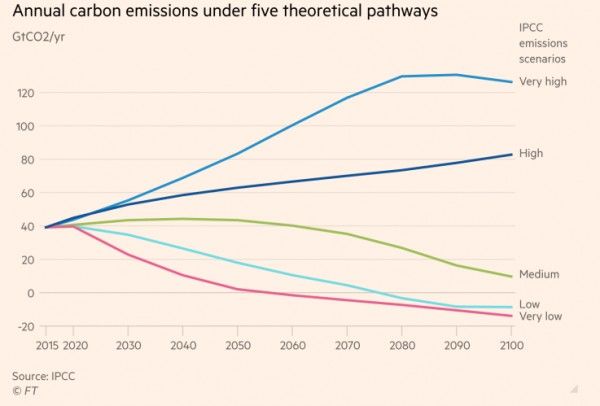"Red alert for humanity" signaled the members of the Intergovernmental Conference on Climate Change (IPCC), who today released their long-awaited report.
The report, signed by 234 top scientists from more than 60 countries, warns that the average temperature on the planet's surface by 1,5 degrees Celsius compared to the pre-industrial era is now very likely to become a reality within the next 20 years. in 2040.
At the same time, he points out that some of the effects - such as the melting of Greenland's ice and rising sea levels - have now surpassed the point of no return.

Scientists are not entirely clear on one thing: Man and his activities are responsible for global warming and the climate crisis.
The optimistic scenario
According to the report, there are five key scenarios for rising temperatures and - directly related to it - "greenhouse gas" emissions for 21ο century. Scientists, of course, avoid taking a position on what is most likely based on current data, but they do make it clear that everything will be judged by the political decisions that will be made.
"If the planet manages to substantially reduce emissions in the current decade and zero them by 2050, then the increase in average temperature is still possible to be limited to 1,5 degrees Celsius," said Pierce Foster, one of the leaders. IPCC researchers.

The above assessment practically coincides with one of the five scenarios, which is the most optimistic. A scenario based on the adoption of more sustainable practices around the world, with the center of gravity shifting from economic growth to the prosperity of all, with consequent reduction of inequalities.
The worst version
In contrast, in the worst case scenario, based on the assumption that CO2050 emissions will double by 2100, the picture will be this: Economic growth rates (based on indicators) will be rapid, but this will be based on over-exploitation of fossil fuels - with the result that by 4,4 the average temperature on the planet's surface will rise by XNUMX degrees.
in.gr
